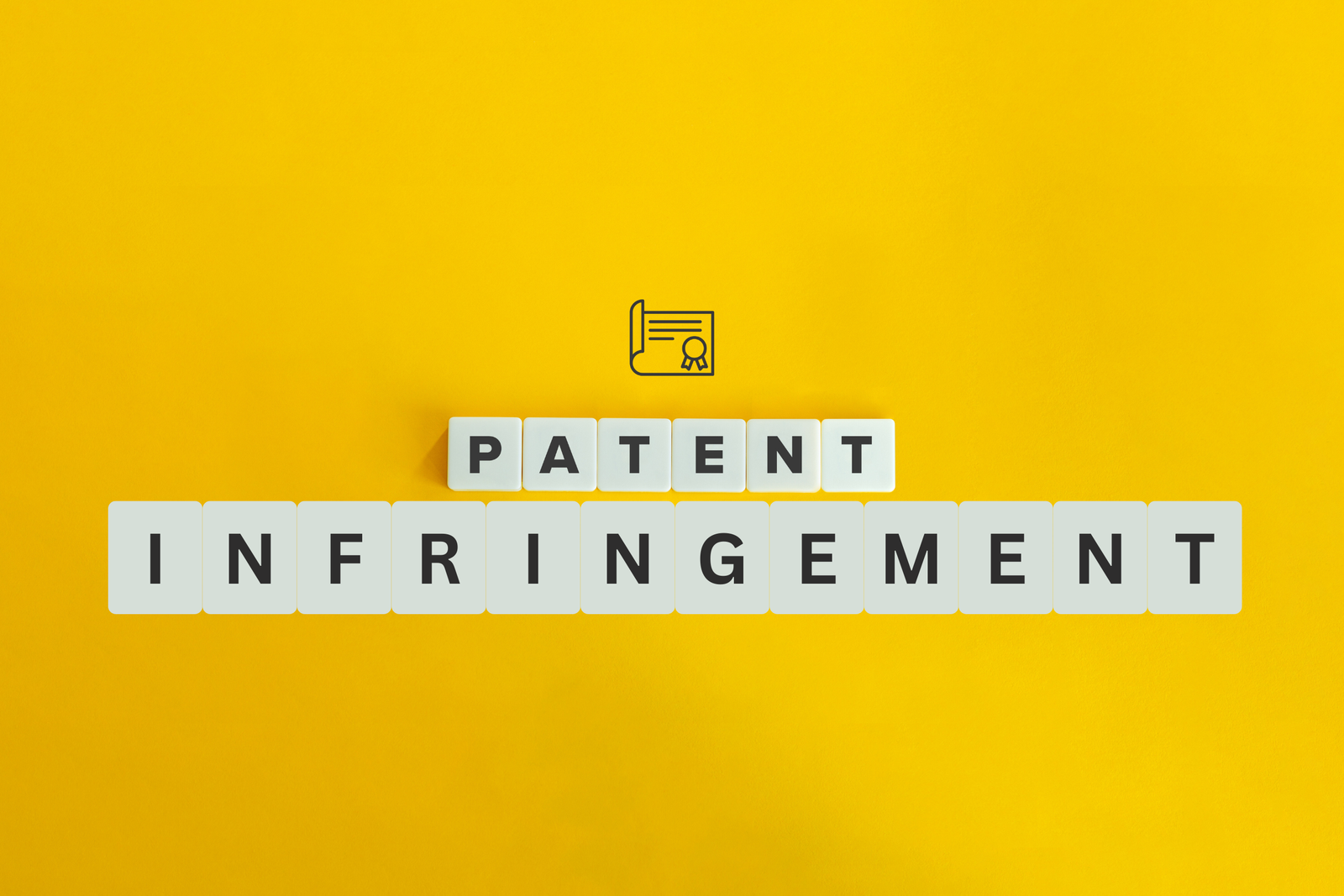
Expert Guidance In Patent Protection and Enforcement
Patent Infringement: What It Means
Patent infringement is the unauthorized use, sale, or offer to sell a patented invention without the patent holder’s permission. When someone infringes on a patent, they’re using someone else’s protected idea or technology, typically to make a profit or gain a competitive edge.
Key points to understand about patent infringement:
Unauthorized Use: Infringement occurs when an individual or business uses or replicates a patented product or process without the patent owner’s consent.
Scope of Protection: Patents provide exclusive rights to the inventor or patent holder, typically covering any similar product or process within the patent’s claims.
Types of Infringement:
- Direct Infringement: Using the patented invention exactly as claimed.
- Indirect Infringement: Encouraging or enabling someone else to infringe on the patent.
- Willful Infringement: When an infringer knowingly violates the patent, which can lead to increased penalties.
Legal Consequences: Patent infringement can lead to legal action, where the patent owner can seek:
- Injunctions: Court orders to stop further use or sale of the infringing product.
- Damages: Monetary compensation for losses due to the infringement.
- Enhanced Damages: In cases of willful infringement, courts may award up to three times the damages.

Types of Patent Infringement in India
Professional Fees
Responding to a Patent Infringement Notice
- Exclusive of Government Fees
- From drafting formal replies to negotiating settlements, our experts will ensure your rights are protected. We also offer guidance on fair use defenses, licensing negotiations, and compliance measures to help you manage and resolve any infringement claims professionally and efficiently.
- No hidden charges
Issuing a Patent Infringement Notice
- Exclusive of Government Fees
- Our professionals will guide you in documenting the infringement, preparing a clear and effective cease-and-desist notice, and setting the groundwork for any potential legal proceedings
- No hidden charges
- .
- .
Defenses to a Patent Infringement Lawsuit
In a patent infringement lawsuit, the defendant may raise several defenses to avoid liability. Here are some key defenses commonly used:
Invalidity of the Patent:
- Explanation: The defendant challenges the legitimacy of the patent, claiming it shouldn’t have been granted. Grounds for invalidity include:
- Lack of Novelty: The invention was not new or unique when the patent was filed.
- Obviousness: The invention was an obvious development to someone skilled in the field, making it unpatentable.
- Non-enablement: The patent doesn’t provide sufficient detail for others to make and use the invention.
- Explanation: The defendant challenges the legitimacy of the patent, claiming it shouldn’t have been granted. Grounds for invalidity include:
Non-Infringement:
- Explanation: The accused product or process does not infringe on any claims of the patent. Even if the patent is valid, if the defendant’s product does not meet the specific claims, they may not be liable for infringement.
Patent Exhaustion:
- Explanation: This defense asserts that the patent holder’s rights are “exhausted” after the first authorized sale. The accused can therefore use or resell the product freely without infringing, as the patent holder no longer has control over it post-sale.
Experimental Use:
- Explanation: The defense argues that the accused used the invention for research, testing, or experimentation rather than commercial purposes. In certain cases, experimental use is exempt from infringement claims.
Prior Use:
- Explanation: If the defendant can prove they used the invention commercially or publicly before the patent application was filed, they may be protected by prior use rights.
Penalties for Patent Infringement in India
When a patent is infringed upon in India, the court can impose several penalties on the infringer, including:
Injunctions:
- Explanation: The court can order the infringer to stop making, using, selling, or importing the infringing product or process. This halts any further unauthorized use of the patented invention.
Damages:
- Monetary Compensation: The patent holder may receive financial compensation for the losses suffered due to infringement. This can include:
- Lost Profits: Compensation for profits the patent holder would have earned if not for the infringement.
- Reasonable Royalties: Equivalent to the fees the infringer would have paid to legally license the patent.
- Monetary Compensation: The patent holder may receive financial compensation for the losses suffered due to infringement. This can include:
Account of Profits:
- Explanation: The court may require the infringer to pay the patent holder any profits made from the unauthorized use of the patented invention.
Enhanced Damages:
- Explanation: For cases of willful infringement, the court can impose up to three times the actual damages. This penalty is meant to deter intentional infringement.
Costs:
- Explanation: The infringer may also be ordered to cover the patent holder’s legal expenses, including court fees and attorney costs, adding an extra layer of financial accountability.
These penalties are designed to not only compensate the patent holder but also discourage unauthorized use and strengthen the protection of intellectual property.

